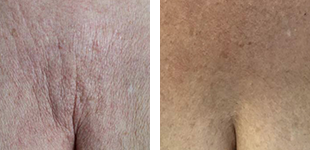Contents
We all have known for years now that the UV radiation in the sun can cause skin damage and skin cancer. Many alternatives including spray tans have been explored to get that “tanned look!” But can fake tans be harmful as well?
About Fake Tans
The active ingredient in fake tanning products is dihydroxyacetone, which reacts with the amino acids on the skin to turn it brown. Dangerous ingredients can also include hormone-disrupting compounds — which can harm babies — as well as carcinogens including formaldehyde and nitrosamines.
The Problem With Fake Tans
The problem is that as it is sprayed, a large portion of it can be inhaled and absorbed into the bloodstream. Latest investigations have determined that this could cause DNA damage and promote tumor formation. It may also predispose someone to health problems such as fertility, birth defects and even cancer, experts said. The increased use of fake-tan products can also have skin irritants and chemicals linked to allergies, diabetes, obesity and fertility problems.
So while looking tanned may appear healthy, it looks like getting it is nothing but unhealthy for the skin and internal organs. Therefore, minimizing our skin to UV radiation, and unnecessary chemicals may be the greatest defense against cancer and health disorders.
Fake Tans And Laser Hair Removal
They don’t mix! Fake tanning before your laser hair removal appointment puts you an increased risk for burns and blisters. Ouch! Tanning products darken the surface of your skin, this means the laser could target your skin instead of the hair follicle. That also means your treatment may not be as effective.
Fake Tans And Skin Checks
How often do you take the time to regularly check your skin? If you’re doing self-tanning at home, use the opportunity to check your skin for any irregularity. Needless to say you would check your skin before applying tanning lotions. Check for moles or spots that weren’t there before. Don’t forget to check the palms for your hand, soles of your feet, and the skin between your fingers and toes!
To schedule a skin exam, please contact Dr. Kormeili’s office. We look forward to seeing you soon!
The post Fake Tans: Can They Also Be Harmful? appeared first on Kormeili, Tanya (drkormeilidermatology.com).
n
Dr. Tanya Kormeili is a nationally recognized, board-certified dermatologist and Clinical Professor of Dermatology at UCLA’s David Geffen School of Medicine. With prestigious training and extensive experience in both medical and cosmetic dermatology, she is renowned for her expertise in skin cancer treatment, laser and surgical procedures, and advanced aesthetic care. An accomplished researcher and frequent speaker, Dr. Kormeili has contributed groundbreaking work to dermatology literature and earned numerous international awards for her clinical excellence. Dedicated to educating patients and advancing the field, she combines cutting-edge science with a personalized approach to help every patient achieve healthy, radiant skin.






